Satellite Workshops
The days following the conference there is a number of workshops available for interested communities. Venue will be the same as for the conference (in the "Marble Hall" located at Thorvaldsensvej 40 close to the Frederiksberg metro station). Coffee/tea will be supplied. Participants are welcome to use the cafeteria on site for lunch which accepts cards and cash.
In the registration process just add the desired workshop, no additional cost applies.
|
McStas Abstract: The McStas Monte Carlo ray-trace simulation package is a well established tool for simulation of neutron optics, instrument and scattering experiments. McStas is an open source (GPL) code, developed in collaboration between DTU Physics, Institut Laue-Langevin, Paul Scherrer Institute, Niels Bohr Institute and the ESS Data Management and Software Centre. At the 2016 McStas school held in connection with NOBUGS in Copenhagen, a group of McStas developers and expert users will lead your way through carefully chosen lecture material and hands-on exercises, thereby introducing you to the most important aspects of the package and its use. The covered topics range from basic installation and use of the code to advanced language features and possibilities for self-development of McStas components, all with the aim of allowing you to work independently with the package in the future. A rough plan for the event includes the following stages: |
||
|
McStas: Thursday 20 October (09:00 - 17:00) |
||
|
McStas: Friday 21 October (09:00 - 17:00) |
||
|
ICAT
On the first day you will find out what ICAT is, learn how to install and set everything up for your facility, and how to start ingesting your data and making it available to users. The meeting will continue with a presentation of the current status and discussion of plans for the future. At the end there will be a closed ICAT Steering Group meeting. |
||
|
ICAT: Thursday 20 October (09:00 - 17:00) |
||
|
ICAT: Friday 21 October (09:00 - 17:00) |
||
| https://icatproject.org/collaboration/communication/face-to-face-meetings/copenhagen-2016/ | ||
|
Mantid |
||
|
Mantid: Thursday 20 October (09:00 - 17:00)
|
||||||||||||||
|
Mantid: Friday 21 October (09:00 - 11:00) NOTE: This has been shortened by the Mantid team.
|
||||||||||
|
DAWN - Eclipse Science Working Group workshop Thursday 20 October (09:00 - 17:00) The morning session will focus on presentations from different Eclipse Science Working Group contributors or closely related projects such as (EASE, January, RichBeans, Scanning, DAWNSci.). The hands-on sessions will take place in the afternoon and will include example of such projects including the Eclipse Advanced Scripting Environment (EASE), DAWN (Data Analysis WorkeNch) and one of its component, DAWN4DAWN (a full Java development environment to develop custom DAWN plugins). At the end of these workshops you will be able to customize your eclipse/RCP application UI with some python scripting and implement your own DAWN plugins. Schedule: 09:00-9:30: Welcome 09:30-10:05: Science @ Eclipse by Tracy Miranda (Kichwa Coders) The Eclipse Science Working Group is made up of several companies and institutions collaborating on forward-looking, open source scientific tools. This talk gives an overview of the projects of the Science Working Group. This includes the foundational projects for data structures (January), visualisations (Eclipse Advanced Visualisation Project), workflows (Triquetrum) and scripting (EASE). We also look at some of the rich, open-source scientific workbenches that are being used to advance science in their specific domains. 10:05-10:35: Open source projects in Data Acquisition and Analysis software by Matt Gerring (Diamond Light Source) have helped Diamond Light Source to deliver data analysis and data acquisition products. This talk will go through the dawnsci, richbeans and scanning projects, how they are reused in products produced at Diamond Light Source, what they do and how to reuse them in your own projects. 10:35-11:00: Coffee break 11:00-11:35: DAWN4DAWN, a DAWN plugin development environment by Torkild U. Resheim (Itema) DAWN4DAWN is a full java development environment that enables developers to build their own DAWN plugins and have them run inside of the DAWN analysis workbench. Torkild will present this feature and also introduce a way to share those new developed plugins through the DAWN market place. 11:40-12:00: Eclipse January by Peter Chang (Diamond Light Source) The January project provides Java implementations of numerical data structures such as multi-dimensional arrays and matrices, including a Java equivalent to the popular Python NumPy library for n-dimensional array objects. The project also includes general purpose data classes, structures and pattern realizations that can be mapped to a wide range of scientific problems while also maintaining metadata about that information, for example CSG trees. 12:00-13:30: Lunch 13:30-15:00: Eclipse EASE in DAWN by Tracy Miranda 15:00-15:30: Coffee break 15:30-17:00: DAWN4DAWN by Torkild U. Resheim |
||
|
|
||
|
Sardana
|
||||||||||||||||||||||||||||||||||||||||||||||||||
|
Sardana: Thursday 20 October (09:00 - 17:00) |
NOBUGS 2016 is organised by:
 |
 |
 |

